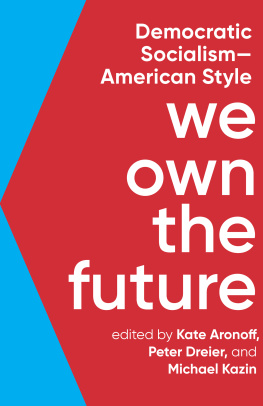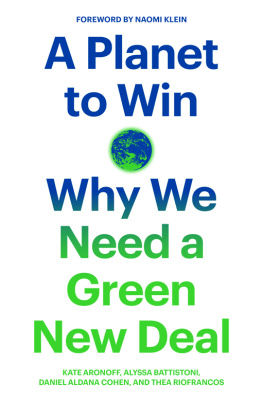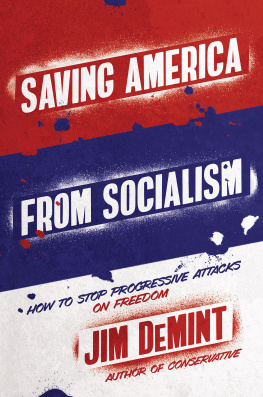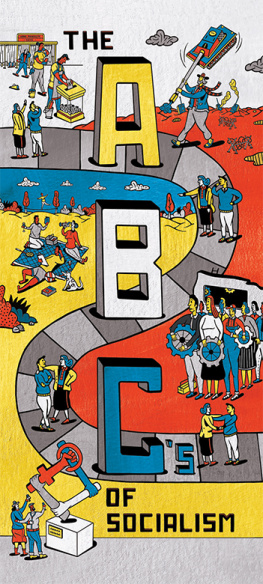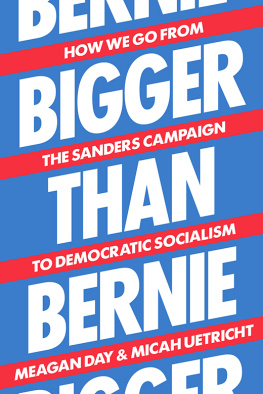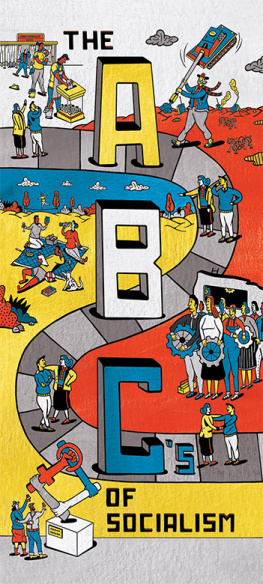
Journalist Kate Aronoffs writing has appeared in The Guardian, Rolling Stone, Dissent, The Intercept, and the New York Times. She is a fellow at the Type Media Center, the co-author of A Planet to Win, and the author of The New Denialism. She lives in Brooklyn.
Peter Dreier is E.P. Clapp Distinguished Professor of Politics at Occidental College. He is the author of The 100 Greatest Americans of the 20th Century: A Social Justice Hall of Fame and co-author (with Robert Elias) of the forthcoming Rebels of the Diamond: The Baseball Reformers and Radicals Who Shook Up the Game On and Off the Field. He is a contributor to The Nation, American Prospect, Dissent, Jacobin, and the Los Angeles Times and lives in Pasadena, California.
Michael Kazin is a professor of history at Georgetown University and co-editor of Dissent. He is the author of War Against War: The American Fight for Peace, 19141918, American Dreamers: How the Left Changed a Nation, The Populist Persuasion: An American History, and other books. He contributes regularly to the New York Times, The Nation, the New Republic, and other periodicals. He lives in Washington, DC.
We Own the Future
Democratic SocialismAmerican Style
Edited by Kate Aronoff, Peter Dreier, and Michael Kazin

Contents
Kate Aronoff, Peter Dreier, and Michael Kazin
Peter Dreier and Michael Kazin
Andrea Flynn, Susan Holmberg, Dorian Warren, and Felicia Wong
Darrick Hamilton
Naomi Klein
Bill Fletcher Jr.
J. Mijin Cha
Robert Kuttner
David Dayen
Sarita Gupta, Stephen Lerner, and Joseph A. McCartin
Aviva Stahl
Michelle Chen
Tejasvi Nagaraja
Thomas J. Sugrue
Dorothy Roberts
Sarah Leonard
Pedro Noguera
David Zirin
Francesca Fiorentini
Harold Meyerson
Michael Walzer
We Own the Future
Part I
Is a New America Possible?
Introduction
Kate Aronoff, Peter Dreier, and Michael Kazin
AMERICA WILL NEVER BE A SOCIALIST COUNTRY, PRESIDENT DONALD Trump declared in his 2019 State of the Union address. The American left is on the cusp of a great victory, wrote an apprehensive David Brooks, the conservative New York Times columnist, in 2018.
More than at any time since World War I, over one hundred years ago, Americans are talking about socialism. Conservatives fear it. Liberals question it. Many progressives and radicals embrace it. Why is that word, and the egalitarian vision it defines, enjoying a resurgence in the United States? And does it mean, as Trump warned and Brooks predicted, that socialism is on the American horizon?
In 2016, Senator Bernie Sanders, a democratic socialist, captured the nations attentionand more than 13 million votesin his campaign for the Democratic nomination for president. Two years later, voters elected democratic socialists Alexandria Ocasio-Cortez of New York and Rashida Tlaib of Detroit to Congress, while dozens of their counterparts won races for city council, state legislative, school board, and other seats around the country. According to a 2019 Gallup poll, 43 percent of all Americans, and 58 percent of Americans between 18 and 34 years old, believe that socialism would be a good thing for the country.
Democratic socialists have played key roles in the upsurge of activism during the twenty-first century, in social movements like Occupy Wall Street, Black Lives Matter, the Fight for $15 minimum wage, #MeToo, the anti-Trump resistance, and the battle for a Green New Deal. The Democratic Socialists of America (DSA)which long languished with just a few thousand membershas exploded. By mid-2019, the organization counted more than 60,000 people among its ranks, with more than two hundred chapters in red and blue states alike; Iowa has the highest density of DSA members per capita. Almost all of those new members are millennials or younger still, without the Cold Warera hang-ups of their baby boomer and Gen X parents.
Americans seems to be holding their breath, trying to decide what kind of country we want to be. An overwhelming majority of Americans are frustrated and fed up with the economic and political status quo. Ideas considered radical only a few years agouniversal health care, tuition-free college, a $15 federal minimum wage, same-sex marriage, requiring big corporations to put workers and union members on their boards, a Green New Deal, and many othersenjoy popular support, and have been embraced by some of the Democratic Partys biggest names.
Is it possible that, within a generation, we might turn this troubled plutocracy into a socialist democracy?
Its hardly radical to say that the United States could be run a lot better and more decently than it is now. Theres much we can learn from other countries. We could cobble together the best parts of what other cities and countries have to offer to make the United States a much fairer and more caring place: Swedens generous family leave policy; Viennas luxurious public housing, which still accounts for about a third of the citys housing stock (another third is cooperatively owned); Britains comprehensive National Health Service; Spains financial support for coal miners wholl lose their jobs as the country shutters its last mines.
But we dont just have to look abroad for successful ideas. We should also look to our own nations history to find examples of progressive, even radical, programs that raised standards of living, tamed the greed of big corporations, made our cities and rural areas more livable, and expanded rights to previously disenfranchised groups. During the 1930s, federal programs created not just magisterial infrastructure and conservation projects, but also murals, national parks, and avant-garde theater productions. Back in the 1950s, before decades of wage stagnation and outrageous corporate profits, the top marginal tax rate in the United States reached 91 percent, and young people graduating from college werent burdened with five-, six-, and even seven-figure debt. More than a third of wage earners belonged to unions, compared to just over 10 percent today.
This period from the mid-1930s to the mid-1970swhich historians call the New Deal Orderwas far from a wonderland of equality and economic security. People of color and their white allies waged epic battles for survival, civil rights, and a measure of political power; women and LGBTQ people had to fight for respect and the right to live and love as they pleased. Many were excluded from the redistributive policies that built the white middle class. In the name of anti-communism, the U.S. government tried to crush popular revolutions in the third world and, under Presidents Lyndon Johnson and Richard Nixon, waged a near genocidal war in Indochina. Its hardly an era worth returning to. But the gap between the rich and everyone else was far smaller than it is now, and liberal presidents, facing pressure from below, were confident enough in the powers of government and continued economic prosperity that they actually vowed to do away with poverty. A bestselling 1962 book about the poor by Americas leading socialist, Michael Harrington, The Other America, did much to inspire that ambition.
Today, in what is still the richest nation that has ever existed, a few things should be as nonnegotiable as they are elsewhere. Everyone should enjoy quality health care that stretches from cradle to grave, including preventative care, mental health services, and prescription drugs. No one should go hungry. Anyone who wants a job should have one. What zip code you live in shouldnt determine the quality of the education you receive, and the color of your skin shouldnt dictate how youre treated by banks, landlords, police officers, or district attorneys. The country you were born in shouldnt predict how many rights you have once you leave it. And no one should live in fear that their worldor that of their children or grandchildrenwill be made unlivable by global warming. And thats just the bread, to crib a phrase coined by the labor organizer Rose Schneiderman a century ago. We can have our roses, too: paid vacations, public parks and beaches to spend them on, and expansive public transit networks within cities and high-speed rail between them.
Next page
